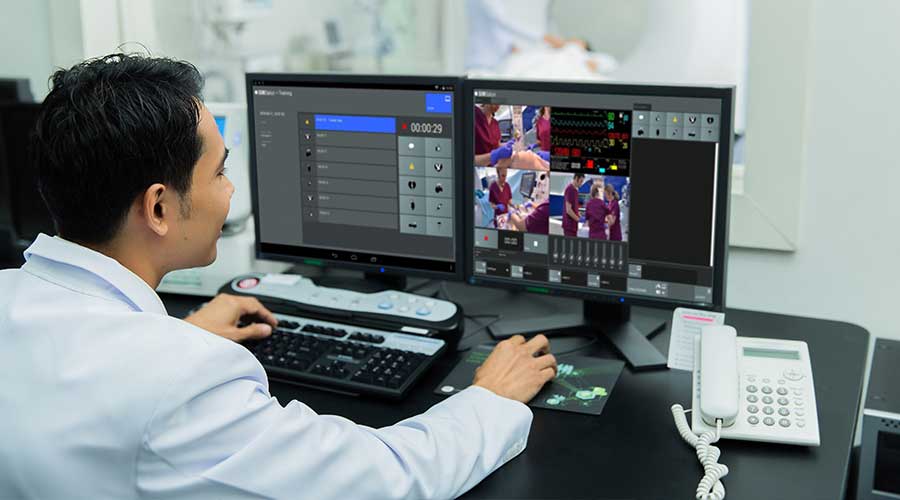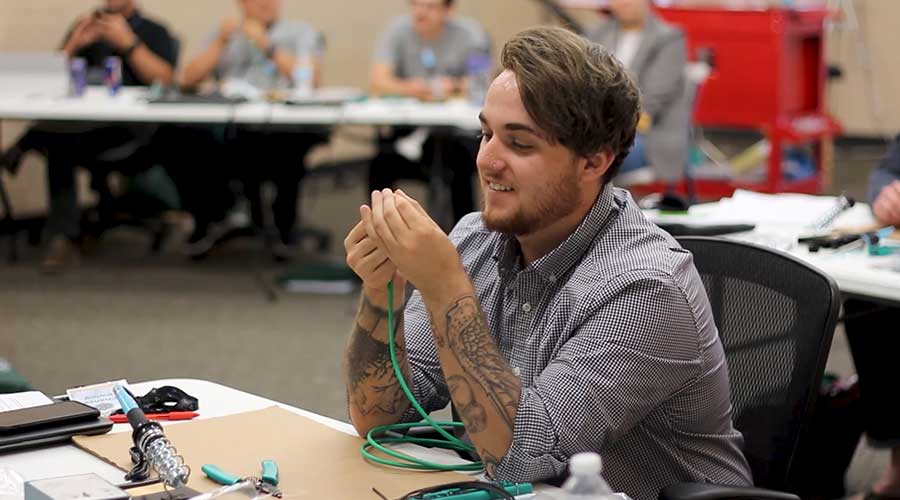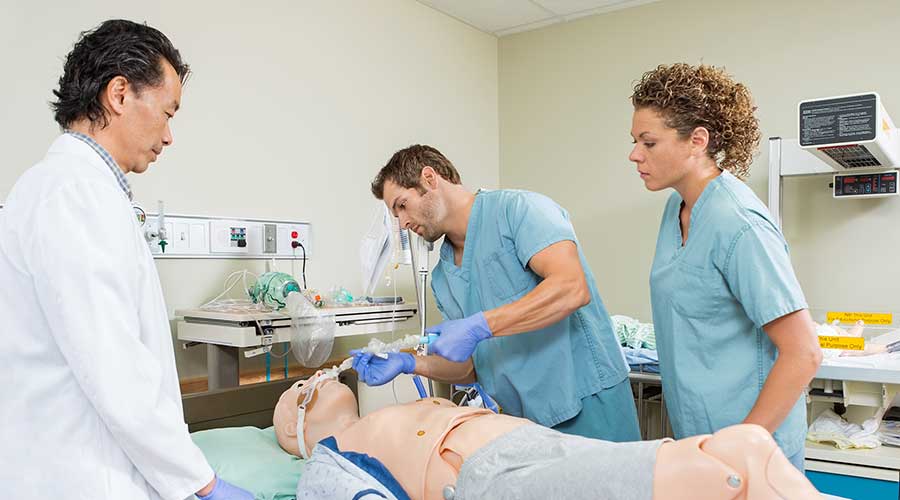Does your list of responsibilities seem to grow every day? Every organization’s simulation program is a little different and without an industry-wide standard for the role of simulation technician or operations manager, deciding what knowledge, skills, and abilities are most important can be a little daunting. The simulation experts at Level 3 Audiovisual recently weighed in on this topic during the webinar, “10 Things Your Sim Tech Should Know” but—spoiler alert—there are four critical skills every sim tech should have.
on Monday, 18 March 2019.
Posted in Medical Simulation Training, Simulation Training
ARE YOU A SIMULATION TECHNICIAN? THIS TRAINING IS FOR YOU
Your organization might be ready to shell out the money for a new or expanded healthcare simulation lab, but are you, the simulation technician, fully prepared to operate and manage it? Don’t fret if the answer is no, or maybe, or I don’t know. Level 3 Audiovisual's Simulation Boot Camp will teach you everything you need to know to succeed in your sim tech role, as well as help your organization’s simulation program succeed.
on Monday, 25 February 2019.
Posted in Medical Simulation Training, Simulation Training
Simulation training has become the gold standard of healthcare education. But when it comes to experience and training for simulation technicians and simulation operators, the industry is still working on standard requirements and expectations. Many people interested in working in the simulation field are left to decide the best training and education on their own, and many institutions who need to hire new sim techs don’t know what to look for. If you are looking to hire new simulation technicians, applicants with an EMT (emergency medical technician) certification are a good place to start. In fact, several of the simulation experts working at Level 3 AV started out as EMTs themselves. In a recent webinar they outlined some of the reasons EMT experience is great preparation for work as a sim tech.
on Saturday, 16 February 2019.
Posted in Emergency Medicine Simulation, Medical Simulation Training
WANT TO UP YOUR SIMULATION GAME? BOOT CAMP CAN HELP
As a simulation technician or operations specialist, you know how valuable training can be in helping you better manage and operate your organization’s simulation center. You may also know that Level 3 Audiovisual’s three-day, all-inclusive simulation boot Camp is the best place to get that training. Now you just need to convince your boss or manager to pick up the tab to send you. Here are five reasons the simulation boot camp is money well spent.
on Saturday, 09 February 2019.
Posted in Medical Simulation Training, Simulation Training
Treating a gasping patient who’s reported severe shortness of breath or a postpartum mother who’s hemorrhaging can overwhelm a nursing student. Fortunately, simulated scenarios take the risk out of practicing in such emergencies. Unfortunately, not all nurse educators are trained to plan and implement these simulations to the same standards. Scenarios that are too advanced or not properly planned can go wrong for students by creating panic, triggering post-traumatic stress disorder, and even causing them to change their majors. Simulation is a powerful tool in healthcare education, but without education standards, too many students won’t get the most out of these experiences. If the educators who run the simulation labs aren’t trained to uphold a certain standard, lab experience may harm students by giving them a subpar education or a negative experience with the field.
on Friday, 19 October 2018.
Posted in Medical Simulation Training, Simulation Training
Many simulationists share a common issue when it comes to day-to-day operations in a simulation. The reality is, many simulation programs are understaffed, and most faculty already have more hats than they can comfortably wear. This has many programs looking closer at the evolving simulation operation specialist role. But where does one find someone with the skills needed without sacrificing an educator position? The shortage of nursing educators is a well-known concern; but too often the operations specialist role(s) merely become a strategy to fund another nursing educator.
on Wednesday, 10 October 2018.
Posted in Medical Simulation Training, Simulation Education
A new hire, a simulation technician for an undergraduate simulation program, attended a manikin vendor’s class on programming scenarios. She had already been working for many years in various IT roles, so learning the technology used in simulation was an exciting opportunity. The course was attended by over 15 nursing and EMT educators; they were almost salivating at the possibility of one day getting “their own” technician. These educators had become keenly aware of the demands placed on them in addition to the courses they taught and related responsibilities, and now they were learning a relatively new technology. Before leaving, the simulation technician received several polite invitations to come work for their programs; in the same breath of the invitation was the expression of frustration that they did not have the funds or administrative will to further staff the simulation facility.
on Friday, 07 September 2018.
Posted in Medical Simulation Training, Simulation Medicine
Nurses are known for how busy they are since patient needs often can’t wait. And the nursing shortage means they need to focus on real patient care without the added responsibility of training students. In fact, a shortage of instructors is a big factor in why nursing schools turned away more than 56,000 qualified applicants in 2017. Fortunately, in many instances, today’s simulation technology can take the place of clinical training in medical facilities.
on Monday, 20 August 2018.
Posted in Medical Simulation Training, Simulation Training
 4 Things Every Sim Tech Should Know
4 Things Every Sim Tech Should Know 







